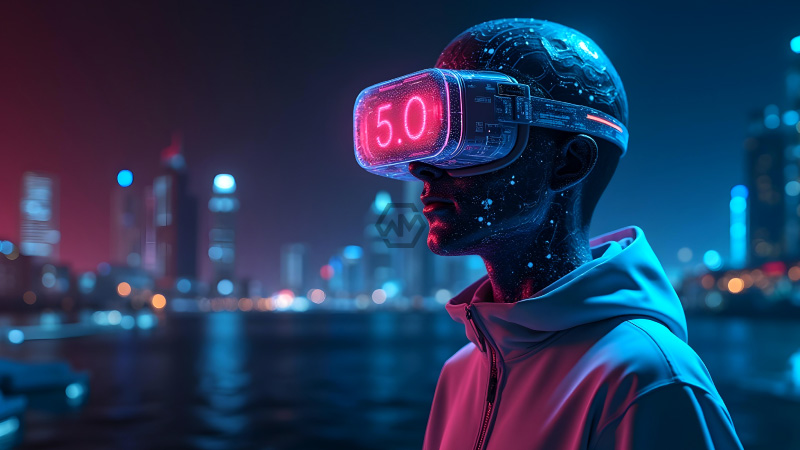- Industry 5.0 aims to reintroduce human involvement in manufacturing using metaverse technologies.
- A lollipop-sized device now enables users to taste flavors in virtual reality.
- The metaverse is shaping the future of factories, customer engagement, and immersive experiences.
The fifth industrial revolution (Industry 5.0) is shifting manufacturing towards a human-centric approach using technologies like AI, blockchain, digital twins, and AR/VR.
Meanwhile, researchers at City University of Hong Kong have made strides in virtual taste technology with a compact, lollipop-shaped device. By using iontophoresis, it stimulates different flavors, offering users a more immersive metaverse experience.
The Metaverse Reshapes Manufacturing and Sensory Experiences
The metaverse is redefining industrial processes through the fusion of human intelligence and digital advancements. By integrating augmented reality (AR), artificial intelligence (AI), and blockchain, Industry 5.0 enables proactive issue detection and smart automation, ensuring human expertise remains crucial. Digital twins and cyber-physical systems further enhance efficiency by simulating and optimizing real-world operations.
Beyond manufacturing, taste simulation technology is breaking new ground in the metaverse. Traditional VR experiences have focused on visual, auditory, and haptic sensations, but now, a new device can replicate flavors using bio-safe hydrogels. This breakthrough could lead to virtual food experiences, digital taste testing, and new ways to engage consumers.
Companies exploring metaverse-based customer interactions are already seeing benefits. For instance, a Chinese automotive manufacturer saw a sales increase after implementing virtual experiences. The ability to engage customers in immersive environments could revolutionize multiple industries, from e-commerce to tourism.
Despite the promise, costs and training requirements remain hurdles to widespread adoption. However, as technology evolves, the potential of smart factories, sensory-driven metaverse experiences, and real-world applications continues to expand, bridging the digital and physical worlds.
The metaverse is no longer just a concept for gaming and social interactions—it is becoming a key driver of industrial efficiency and immersive experiences. With innovations like virtual manufacturing optimization and digital taste simulation, the future of the metaverse is rapidly expanding into new, practical domains.
“The best way to predict the future is to create it.” — Peter Drucker



